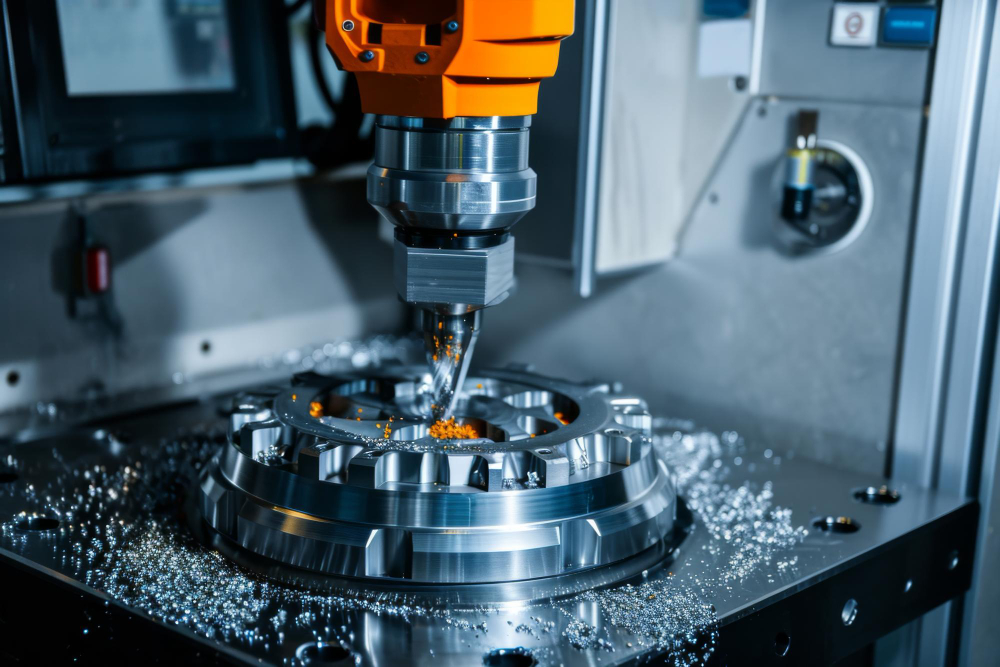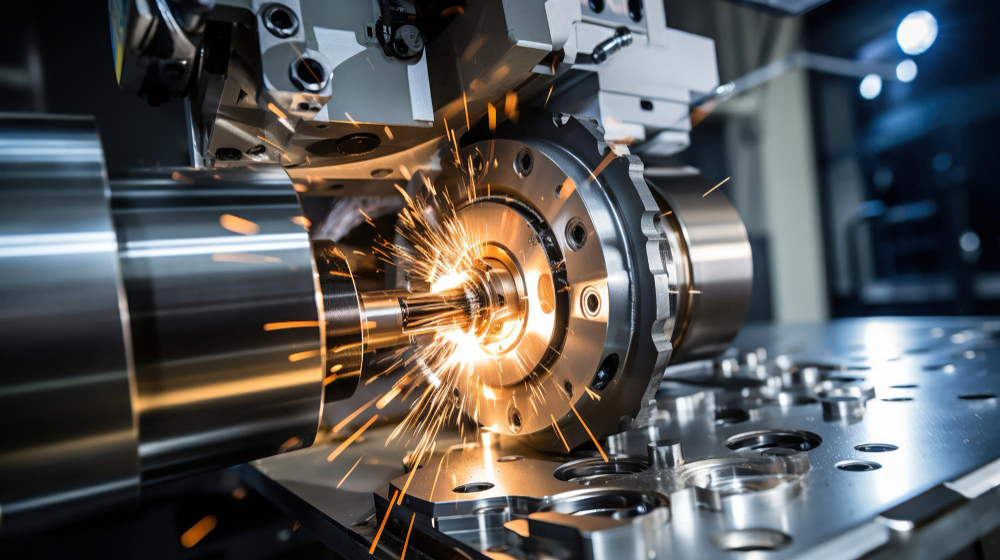The Benefits of CNC Machining in Modern Manufacturing
- CNC machining has revolutionized modern manufacturing with precision and efficiency.
- Understanding the core benefits of CNC machining can help businesses streamline production.
- Incorporating CNC technology can lead to significant cost savings and improved product quality.
CNC (Computer Numerical Control) machining has become a cornerstone of modern manufacturing. This technology allows for the automated control of machining tools using a computer, leading to unparalleled precision and consistency. Whether in aerospace, automotive, or consumer electronics, CNC machining is leveraging a technological edge to meet demanding production schedules. For tasks like creating CNC replacement parts, CNC machines offer a highly effective solution that ensures consistent quality in high-volume production runs.
The ability of CNC machines to execute complex tasks with high accuracy has turned them into indispensable tools for manufacturers. As demand for high-quality, custom, and intricate parts grows, CNC technology is increasingly seen as a solution to streamline production, cut costs, and elevate product standards. Whether a company produces thousands of components or just a few, CNC machining brings flexibility and reliability that manual processes can’t match.
What is CNC Machining?
At its core, CNC machining is a subtractive manufacturing process. This means it removes material from a solid block (referred to as the workpiece) to form the desired shape. The process is directed by pre-programmed computer software that dictates the movement of machinery and tools.
The beauty of CNC lies in its automation. Once the parameters and designs are set using CAD (Computer-Aided Design) and CAM (Computer-Aided Manufacturing) software, the CNC machine can autonomously perform operations such as drilling, cutting, grinding, and milling with high precision. This minimizes the need for manual intervention and reduces the margin for error.
Advantages of CNC Machining

1. Precision and Accuracy
One of the foremost benefits of CNC machining is its ability to produce highly accurate parts. Manufacturers can use CAD software to design detailed specifications, and CNC machines will replicate those specifications with minimal deviation. According to an article on Engineering.com, the accuracy achieved by CNC machines can reduce human error significantly, leading to uniform and consistent production quality.
For industries such as aerospace, automotive, and medical manufacturing, where even the slightest deviation can cause critical failures, this level of precision is indispensable. CNC machines can maintain tolerances within microns, ensuring that parts are made to exacting standards every time.
2. Enhanced Efficiency and Productivity
CNC machines are designed to maximize efficiency in manufacturing environments. They operate continuously with minimal downtime, allowing accelerated production cycles and increased throughput. A study by IndustryWeek noted that facilities employing CNC machines saw a productivity increase of up to 30% compared to those relying on traditional methods.
Automation is a key feature that drives this productivity. CNC machines can run around the clock with minimal supervision, leading to higher output in shorter periods. Furthermore, they can quickly switch between different tasks, making the manufacturing process more flexible and adaptive to changing demands. This ability to multitask reduces bottlenecks and keeps production lines running smoothly.
3. Cost Savings
While the initial investment in CNC machinery can be substantial, the long-term cost savings are significant. Here’s how:
- Reduced Labor Costs: CNC machines require fewer operators since they can be programmed to run autonomously. This allows companies to allocate their labour resources more effectively, reducing the overall cost of production.
- Minimized Material Waste: CNC machining ensures precise cutting, drilling, and milling, which minimizes errors and reduces the amount of wasted material. According to Machining Solutions, material waste can be reduced by up to 20% with CNC processes.
- Lower Rework Costs: With the increased precision and reduced human error, fewer defective parts are produced. This reduces the need for costly rework or scrapping of parts, which can significantly impact a company’s bottom line.
In addition, the efficiency of CNC machines reduces energy consumption, contributing to further cost savings over time. For manufacturers looking to improve their return on investment (ROI), CNC machining offers a clear path to higher profitability.
4. Improved Safety
Safety is a critical consideration in any production environment. CNC machines operate in enclosed environments, reducing the risk of injury from flying debris, sharp tools, or other hazards commonly associated with manual machining. The automated processes further reduce the need for direct operator interaction, minimizing exposure to dangerous conditions.
CNC machines also have fail-safes and sensors that detect anomalies, halting operations to prevent damage or accidents. This creates a safer workspace for employees, allowing them to focus on monitoring systems and optimizing operations rather than performing potentially hazardous tasks.
5. Versatility and Flexibility
CNC machines are highly versatile and can handle various materials, including metals, plastics, composites, and wood. This adaptability allows manufacturers to easily switch between different products and materials, making CNC technology ideal for companies that need to respond to varying customer demands or develop custom components.
Moreover, CNC machines can produce complex geometries that would be impossible or highly inefficient with traditional machining techniques. Whether it’s intricate curves, detailed patterns, or three-dimensional shapes, CNC technology opens up new possibilities for product design and innovation.
Applications of CNC Machining Across Industries

CNC machining’s precision and efficiency have made it a valuable asset in several key industries:
- Aerospace: High precision is required to meet the exacting standards of aircraft components. CNC machining creates turbine blades, engine parts, and even landing gear.
- Automotive: From engine blocks to transmission parts, CNC machines are widely used to manufacture components with tight tolerances in the automotive sector.
- Medical: CNC machines produce medical implants, surgical tools, and diagnostic devices, ensuring that all products meet strict regulatory requirements.
- Consumer Electronics: The demand for smaller, more intricate electronic components has grown, and CNC machining helps manufacturers meet these needs with precision and consistency.
Challenges of CNC Machining
While CNC machining offers numerous advantages, it is not without its challenges:
- High Initial Investment: CNC machines are expensive to purchase and install. However, their long-term cost savings often outweigh the upfront costs.
- Complex Setup: The setup and programming of CNC machines require specialized skills and expertise. Although the machines operate autonomously, qualified technicians are needed to program them correctly and troubleshoot any issues that may arise.
- Maintenance Costs: Regular maintenance is required to ensure that CNC machines continue to operate at optimal efficiency. Neglecting maintenance can result in machine downtime and costly repairs.
Concluding Thoughts
CNC machining has transformed modern manufacturing, offering unparalleled precision, efficiency, and cost-effectiveness. Its ability to handle complex tasks with minimal human intervention makes it an essential tool for aerospace and electronics industries.
For companies aiming to stay competitive, adopting CNC technology is more than a recommendation—it’s a necessity. The benefits of integrating CNC machining, including improved safety, reduced labour costs, and the ability to produce high-quality parts at scale, cannot be overstated. As CNC machining continues to evolve, its role in shaping the future of manufacturing will only grow, making it an indispensable player in the industrial landscape.

















